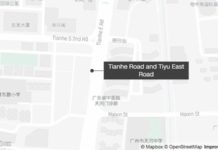The seized shipment is only the latest example of scammers attempting to profiteer from fake personal protective equipment, a trend that spiked in the early days of the pandemic when shortages of masks and other equipment were widespread.
As the first wave of the pandemic approached in March, China struggled to shut down tens of thousands of shops making fake masks and other testing equipment, some of which was shipped abroad. In April, two men were arrested in California for a scheme to sell a $4 million stockpile of masks that did not exist.
According to the C.B.P. release, criminal organizations overseas are still attempting to export a wide variety of counterfeit equipment related to the coronavirus. “Among other products, these criminals are smuggling and selling counterfeit safety equipment, unapproved Covid-19 test kits, unproven medicines and substandard hygiene products through the online marketplace,” the agency said.
Sleeping jurors, muted lawyers, I.T. support for the plaintiff: Technical mishaps and other issues mar virtual trials.
Arguments ended Thursday in what may well be the country’s longest-ever virtual jury trial after a series of technical mishaps and at least three requests for a mistrial.
Defendants in the case — an asbestos-related lawsuit filed in Alameda County, Calif. — complained that jurors appeared to be sleeping, working out and caring for children during the trial, and that they got chummy with the plaintiff, helping him create a virtual backdrop for his video feed. The lawyers for the defendants said that they were unable to see jurors’ reactions because no camera was trained on them, and the lawyers said that for a time they were unable to voice objections because they were muted.
The judge, Brad Seligman of Alameda County Superior Court, declined to declare a mistrial.
The pandemic has forced courts across the country to conduct virtual hearings, with mixed results. A Florida judge admonished lawyers not to appear shirtless or in bed. A federal hearing on Georgia’s voting machines was hacked, showing images of 9/11, a swastika and pornography. Lawyers and scholars have raised numerous concerns over fairness, questioning things like whether video alters perceptions of credibility.
Going remote has had a host of effects, said Paula Hannaford-Agor, director of the Center for Jury Studies at the National Center for State Courts. More people are appearing for their court dates, but jury pools are skewing whiter, more male and younger, Ms. Hannaford-Agor said, probably because of the need for access to technology to participate.
Source : Nytimes














